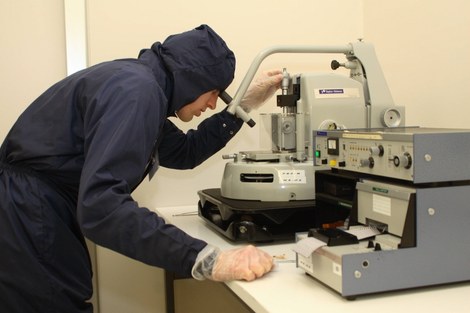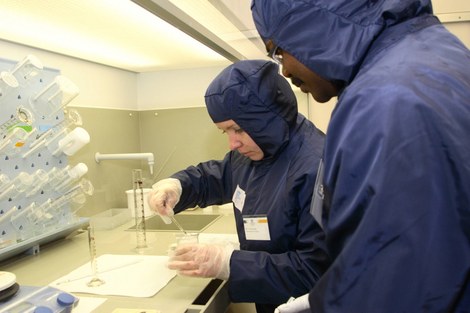Belgium has an excellent position in the development of new medicines. ‘To continue to play that leading role, we also need to focus on innovation in drug production,’ says Professor Thomas De Beer.
With the CESPE Innovation Accelerator, Ghent University offers an answer to the need for top research infrastructure for innovation in pharmaceutical production technology. This is necessary to further anchor Belgium’s leading position in the field of drug development research and to guarantee its production in our region.
Need for innovation in pharmaceutical production
‘If you look at pharmaceutical manufacturing innovation over the last decades, it hasn’t kept up with the speed of drug development. Innovation in the pharmaceutical sector primarily focuses on the development of medicines. But the increasing complexity of medicines and their supply needs also requires innovation in production technology,’ says Professor Thomas De Beer. He is director of CESPE, the Center of Excellence for Sustainable Pharmaceutical Engineering & Manufacturing at Ghent University, which is the basis of the new innovation accelerator for production technology in the pharmaceutical sector.
‘Innovation in the pharmaceutical sector primarily focuses on the development of medicines. But the increasing complexity of medicines and their supply needs also requires innovation in production technology.’ Professor Thomas De Beer.

‘Unlike other sectors in the manufacturing industry, pharmaceutical products are often developed before it is clear how they can be produced on a large scale in a competitive, sustainable and flexible way. By linking the development of a medicine at an early stage to the development of the production process, you shorten the lead time,’ explains Professor De Beer.
‘The Corona pandemic has also increased the need for agile production technologies. Just think of the supply of intermediate substances in the event of an abruptly rising demand or local production of critical medicines, and the associated cold chain distribution at -80°C of certain vaccines. This requires new technologies and we will research and develop them in the new CESPE center in collaboration with the industry,’ says Wouter De Soete, manager of CESPE at Ghent University.
Unique research infrastructure
The CESPE Innovation Accelerator will include cleanrooms, lab and office space as well as a (bio)pharmtech incubator. ‘This combination of research infrastructure in the field of production innovation is unique in Belgium. With this we make a huge difference, not only for academic research but also for industry,’ emphasizes Professor De Beer.
‘This research infrastructure in the field of production innovation is unique in Belgium. With this we make a huge difference, not only for academic research but also for industry.’ Professor De Beer.

There are strict requirements for the production of medicines. You have to create the right conditions for researchers and for the products you work with. Thanks to the modular and flexible layout of the cleanrooms and lab areas, large companies, start-ups and research institutions can perform tests and collaborate under optimal conditions. This is the only way to create the right environment for innovation.’
The center also provides the necessary space to accommodate spin-offs resulting from this innovative research. ‘We strongly believe that cross-fertilization between industry and academia will lead to innovative production technologies. In the field of production technology within the pharmaceutical sector, we want to become the reference point, both for research and training of the right profiles. For that reason, we will start with a new master in pharmaceutical engineering in the academic year 2022-2023. This combination of pharmaceutical and engineering skills is much needed in the sector to realize innovation. By focusing on that, we are firmly convinced that this will lead to new start-ups. We also want to offer them the necessary support in the CESPE center to start up and grow.’
‘The main goal of CESPE is to be the leading innovation hub in Europe for the end-to-end pharmaceutical production of tomorrow’s medicines,’ according to Wouter De Soete. ‘That means that we examine the entire drug production chain, from development to its supply to the market, and examine how we can model and optimize it as best as possible. For this we have to call on different expertise. Just think of experts in the field of big data, AI, automation and robotization, energy-efficient production,…’ According to De Soete, the center in Zwijnaarde will be a game changer for the pharmaceutical industry in Flanders, which will also provide a lot of jobs.
More information
Thomas De Beer, thomas.debeer@ugent.be
Wouter De Soete, wouter.desoete@ugent.be
